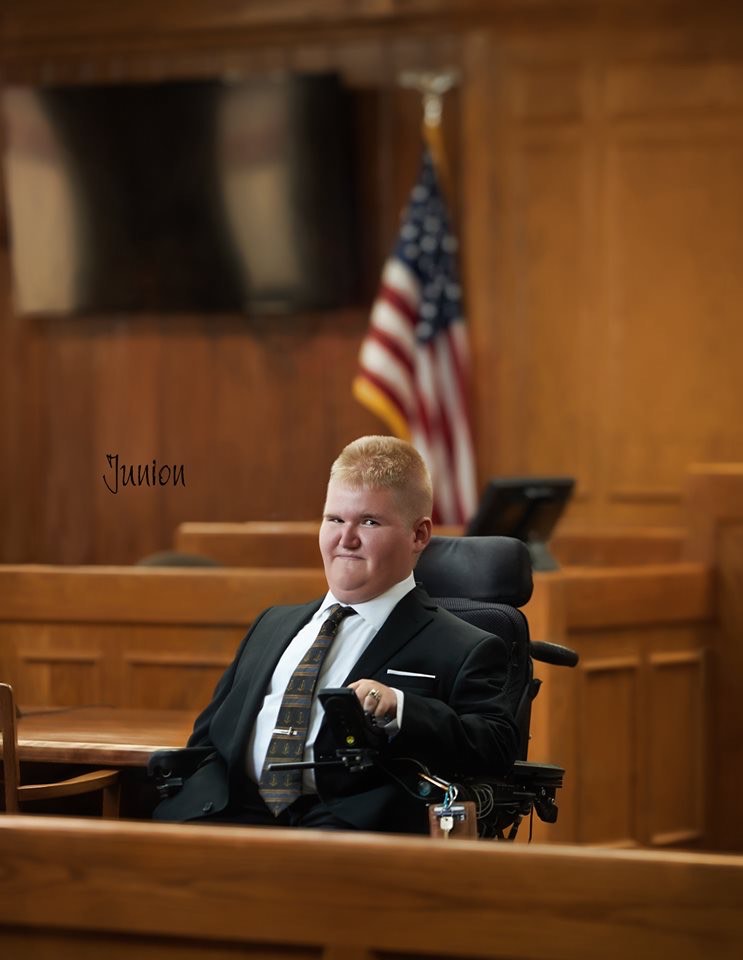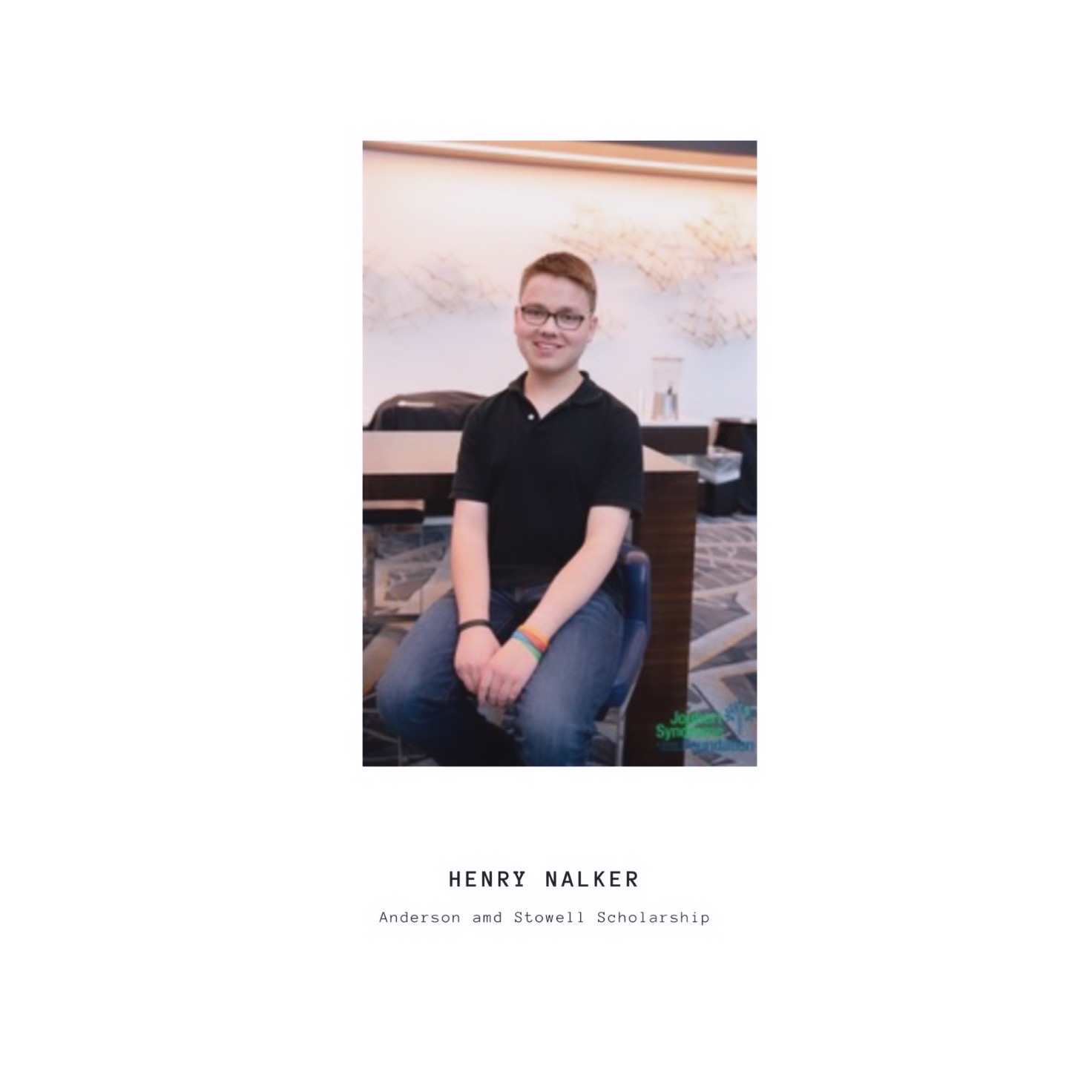
Roy Thorson
It’s said that it is the little things that make the biggest difference and, while this is surely true, the significance of this statement cannot be understood until one lives life with a physical disability. At the age of 18 months I was diagnosed with spinal muscular atrophy type two (SMA II), a degenerative neuromuscular disease that deletes the SMN gene that is responsible for muscle growth. As a result, I live a life quite unlike the average person, as I only have limited use of my left arm and no use of my right arm as well as being confined to a wheelchair to get around. This certainly adds a few challenges in my day to day life, but I live an amazing life regardless. I have had a very successful high school career in band, academics, and mock trial, earning over 40 awards in the last three years. This fall I will be attending the University of Wisconsin Stevens Point (UWSP) and I see myself being successful there as well: all because of the little things.
I participated in DC Everest high school mock trial team for the past three years. Simply put, mock trial is a cross between acting and debate that involves creating a team and acting out a court case composed by the Wisconsin Bar Association. Within each case a team must learn to effectively use the Wisconsin rules of evidence and memorize affidavits, direct/cross examinations, and opening/closing statements. The process starts in October and there are events beginning in January. The first few events, or what we call scrimmages, do not require memorization, but rather participants are allowed to take notes to the podium, except for me. Given my wheelchair and limited range of motion I could never reach the provided podiums: a small problem that ended in a big solution. This problem went unnoticed and unsolved by many, but I knew the solution from the beginning: just memorize the content before January. While I knew this was possible, it made my life more hectic and the pressure was on but I am not the type of person that accepts failure. So, for the past three school years I worked very hard to memorize content that changed every year and I succeeded in doing so which ultimately helped both my team and myself. It helped my team and myself in exactly the way one would imagine: by knowing content better and thus performing better in competition, allowing us to advance to state competition all three years. However, it’s the little things that I learned through this memorization process that made the biggest difference. I discovered things about myself and exactly how I learn and then took these skills and applied them to my academics, ultimately leading to my 3.976 GPA in high school, being number six in my class of 376, and realizing my passion for a career in law. It all happened simply as a result of a little problem and the little things I learned from solving it.
I am not new to solving problems but there was one problem that took me 18 years to solve. Due to SMA, transportation has always been a challenge. I am very fortunate to have a family that was willing and able to take me places, but my ability to hang out with friends was limited to the schedule of others; this was my next challenge to conquer. I started taking driver’s education the summer after I turned 16 and I began to see a light at the end of the tunnel for transportation needs. From that moment onward it was my goal to get a car and get driving. Now, for the average person this is a small task but for me it involved a lot more. This process started with joystick driver’s education training, which is only offered by one company in Wisconsin. Then came buying a car and getting it converted in Indiana. The conversion meant that I could drive independently with a joystick, which is even harder than it sounds. This process took just over nine months and cost just north of $120,000, which the Department of Vocational Rehabilitation (DVR) thankfully helped with. By my graduation, I had a fully functioning car of my own and that was a big accomplishment for me; however, it is the little moments of freedom that this transportation has granted me that have made the biggest difference. I can now go out with friends as I please, see my relatives more often, and help my parents with transportation like they have helped me. It’s the little things like these that make my disability fade and my abilities come into full focus.
Living with a physical disability is not easy and there are additional challenges to every day activities, but these challenges are not what life is about. Life is about the little things; those little moments of freedom or of success when disabilities turn into abilities and the worries fade into success. These moments can be brief or infrequent but they are always there, hidden in the little things. That’s how you live life with a disability: focus on the small wins, the moments of success, and the times of freedom. Focus on the little things and watch disability fade into ability.





